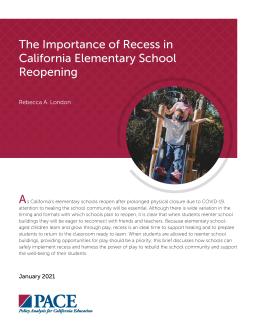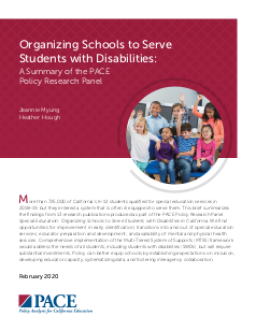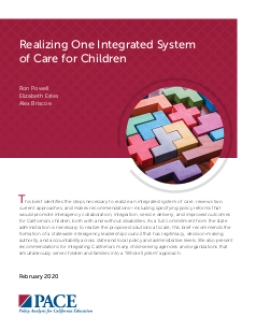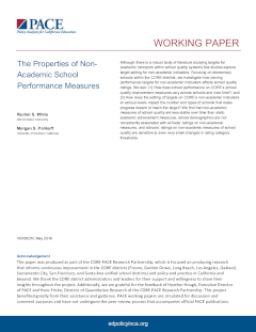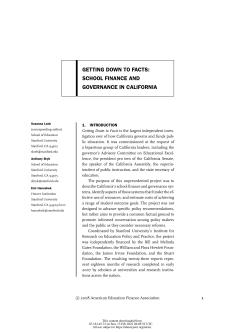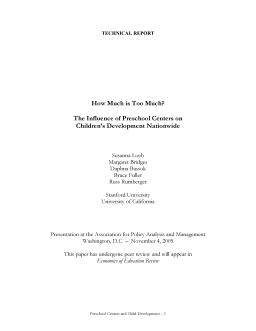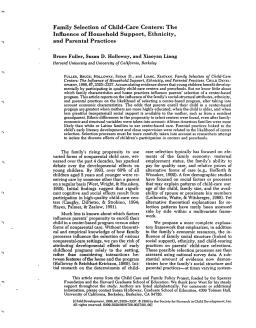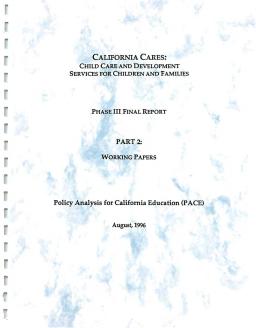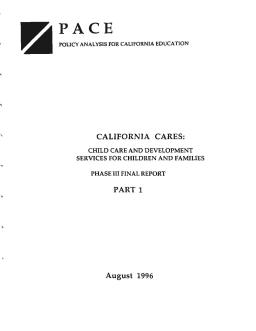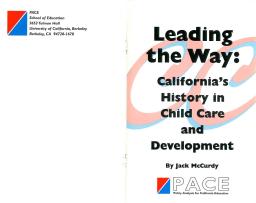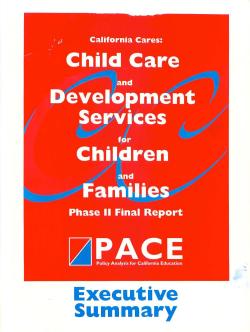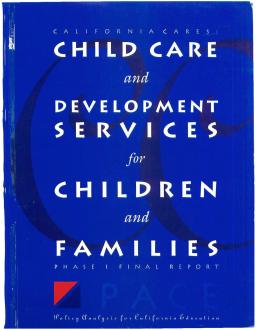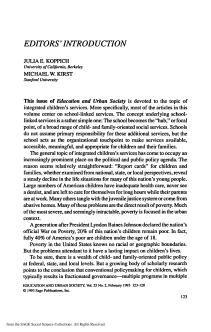Summary
Summary
Summary
Summary
Summary
This report commemorates the fifth anniversary of the Getting Down to Facts project, which sought to provide a thorough and reliable analysis of the critical challenges facing California’s education system as the necessary basis for an informed discussion of policy changes aimed at improving the performance of California schools and students. The report focuses on the four key issues that received emphasis in the Getting Down to Facts studies: governance, finance, personnel, and data systems.
Summary
Summary
Summary
Summary
Summary
Summary
Phase III of the California Cares report aimed to redesign childcare and development policy, with input from the community and representatives from three agencies. Work groups and traditional research projects were conducted to study nine questions deemed critical to policy restructuring. Part II of the report includes working papers for all tasks except state governance, which is included in Phase III.
